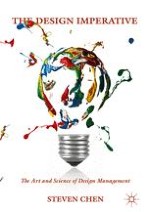2019 | OriginalPaper | Buchkapitel
7. The Open Office: Google and the Modern Penitentiary
verfasst von : Steven Chen
Erschienen in: The Design Imperative
Verlag: Springer International Publishing
Aktivieren Sie unsere intelligente Suche, um passende Fachinhalte oder Patente zu finden.
Wählen Sie Textabschnitte aus um mit Künstlicher Intelligenz passenden Patente zu finden. powered by
Markieren Sie Textabschnitte, um KI-gestützt weitere passende Inhalte zu finden. powered by
